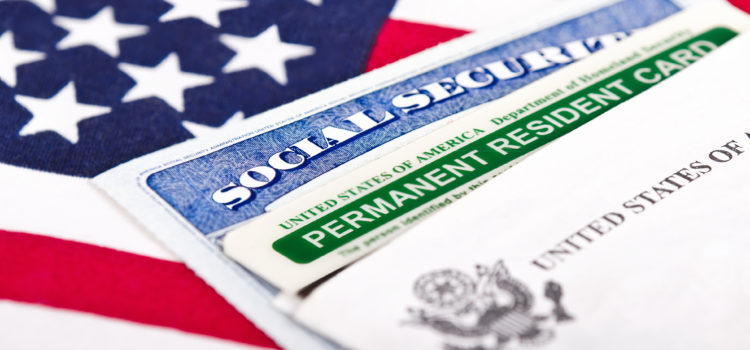
13 Aug Immigrant Advocates Oppose New ‘Public Charge’ Rule

.
The CC Pulse Staff Report | Photo via istock
Opponents of the Trump administration’s new “public charge” rule are hoping lawmakers or a lawsuit will block it before it’s implemented, as immigrant advocates say it could prevent millions of families from accessing healthcare and other programs or risk being denied lawful permanent status.
The public charge regulation was proposed last fall by the Department of Homeland Security, essentially punishing immigrants who use public services. Estimates of the regulation’s impact indicate it would threaten about 26 million people nationwide, directly or indirectly.
In addition to targeting immigrants of color, those with disabilities, and those who make less than $62,000 a year, the rule puts applications for admission to the U.S. or applications for a “green card” at risk if an immigrant uses certain public benefits.
Federal lawmakers are working on two measures while immigrant advocates are preparing to file a lawsuit to stop it. Tuesday, San Francisco and Santa Clara counties filed a lawsuit about the rule in federal court.
In Congress, “The No Federal Funds for Public Charge Act,” would block funding of the regulation’s implementation. It’s sponsored by Rep. Judy Chu (D-California) and has more than 40 cosponsors. In the Senate, Sen. Mazie Hirono (D-Hawaii) says she intends to introduce companion legislation after Congress returns from recess.
“This policy denies a permanent, secure future in this country to anyone who isn’t white and wealthy,” said Marielena Hincapié, executive director of the National Immigration Law Center. “We will not stand for it. The National Immigration Law Center is preparing to sue to fight back against this regulation and protect immigrant families.”
Olivia Golden, executive director of the Center for Law and Social Policy, says the Trump administration has been “consistent in its use of harmful and hateful tactics to scare immigrant communities and create fear and anxiety for many immigrant families and their children.”
“The rapid publication of this rule, despite more than a quarter of a million comments filed during the 60-day comment period, indicates that the administration has deliberately chosen to ignore the perspectives, experiences, and research provided by a broad cross-section of Americans,” she said.
The proposal drew more than 266,000 public comments, the majority in opposition, she said. The proposal is also opposed by healthcare advocacy and provider groups, nutrition and housing advocates, corporate CEOs, and advocates for economic opportunity, children, and working families.
At the same time, advocates say that the U.S. Department of Justice has put together a companion regulation that could expand deportations based on immigrant families’ use of public programs, having an even greater chilling effect because of the increased possibility family separation in the case of a deportation.
“This final rule serves to further intimidate and frighten families who seek needed services to keep them healthy and productive,” said Dr. Julie Linton, chair of the American Academy of Pediatrics Council on Immigrant Child and Family Health. “Taken together with other looming harmful proposals, these actions will have detrimental consequences on immigrant health and well-being.”
Cynthia Buiza, executive director of the California Immigrant Policy Center has a simple message for anyone intimidated by the new DHS rule: “California has your back. A courageous network of advocates and community groups is fighting for you.”
“We will not allow this harmful regulation to undo the powerful work we have done in California to protect all who call our state home,” she said.






No Comments